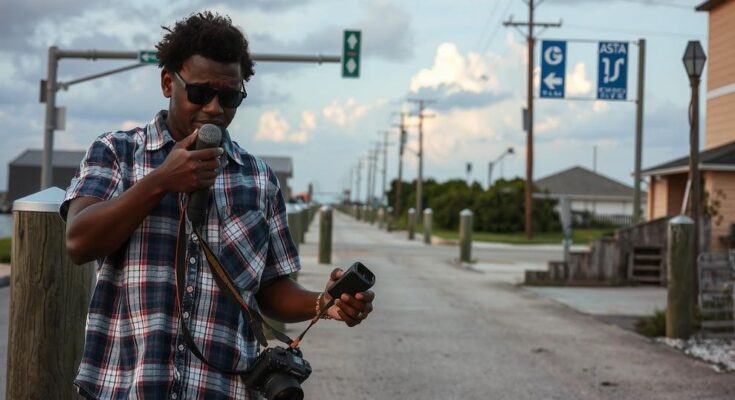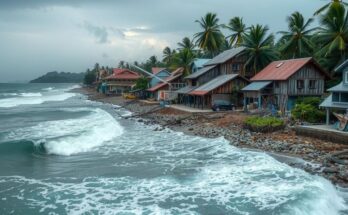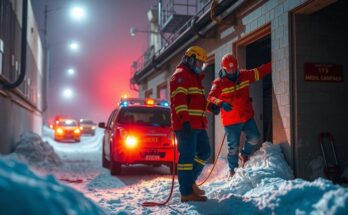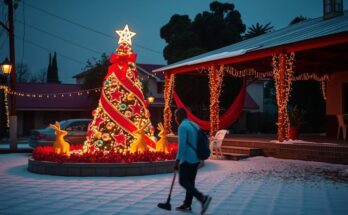Halle Parker, an environmental journalist based in Louisiana, captures the dual nature of water in communities threatened by climate change, exploring both the anxiety it induces and the joy it brings. Through her radio work and podcast, she emphasizes the need for diverse narratives, particularly from marginalized communities. Parker’s commitment to storytelling not only highlights the urgent environmental crises but also amplifies voices of resilience, reflecting on the ongoing challenges faced by Indigenous tribes and other vulnerable populations.
In Coastal Louisiana, environmental journalist Halle Parker addresses the intricate relationship between local communities and water, highlighting the dual nature of water as both a source of life and a potential harbinger of disaster. Parker elucidates the anxieties faced by New Orleans residents, who live in constant fear of flooding driven by increasingly severe storms and rising sea levels. As Parker articulates, “For homeowners living here, you’re constantly worried about your home getting flooded.” Covering the intersection of environmental threats and their socio-economic implications, Parker captures the essence of water’s significance in the region, from recreational activities to its risks. She considers her role a profound privilege, stating her commitment to sharing the stories of those disproportionately affected by climate change. Originally from Virginia, Parker’s journey into environmental journalism began with covering agricultural impacts from severe weather back home, leading her to Louisiana, which she describes as a pivotal area for environmental reportage. Transitioning from print journalism to radio, Parker focuses on auditory storytelling that emphasizes personal narratives. Her current role at WWNO, complemented by her co-hosting of the podcast “Sea Change,” enables her to elevate the voices of marginalized communities facing environmental crises. As a Black woman from a marginalized background, Parker feels an inherent responsibility to report on these issues: “Covering marginalized communities is especially important to me, partially because I am part of one of those communities.” Additionally, Parker actively supports the development of diverse storytellers through her involvement with a nonprofit organization focusing on amplifying underrepresented voices in environmental issues. Her most impactful stories involve Indigenous tribes threatened by rising waters, showcasing the resilience and proactive leadership of figures like Devon Parfait, chief of the Grand Caillou/Dulac band of Biloxi Chitimacha Choctaw. Parker reflects on the empowering narratives shared by leaders confronting the prospects of displacement, viewing these stories as opportunities for community solidarity rather than merely tragic circumstances. Ultimately, Parker’s dedication to highlighting the realities faced by communities in peril demonstrates the necessity of such narratives in fostering understanding and action amid the climate crisis.
In the context of American coastal regions, particularly Louisiana, the effects of climate change manifest in unique ways. Rising sea levels and increased storm severity pose significant threats to communities, especially in low-lying areas like New Orleans. Journalists like Halle Parker are crucial in exploring the emotional, social, and environmental dimensions of life in these regions. Their work not only documents the struggles residents face but also champions the resilience and agency of marginalized groups amid broad environmental challenges, intertwining their narratives with systemic issues such as racial and economic inequity.
Halle Parker’s work exemplifies the vital role of journalism in addressing environmental issues and amplifying the voices of those affected by climate change. By focusing on the emotional and socio-political realities of coastal communities in Louisiana, Parker contributes to a deeper understanding of the complexities surrounding water as a resource and a risk. Her dedication to telling the stories of marginalized populations sheds light on the intersection of environmental health and social equity, underscoring the importance of inclusive representation in media coverage of climate-related challenges.
Original Source: www.waltonfamilyfoundation.org




